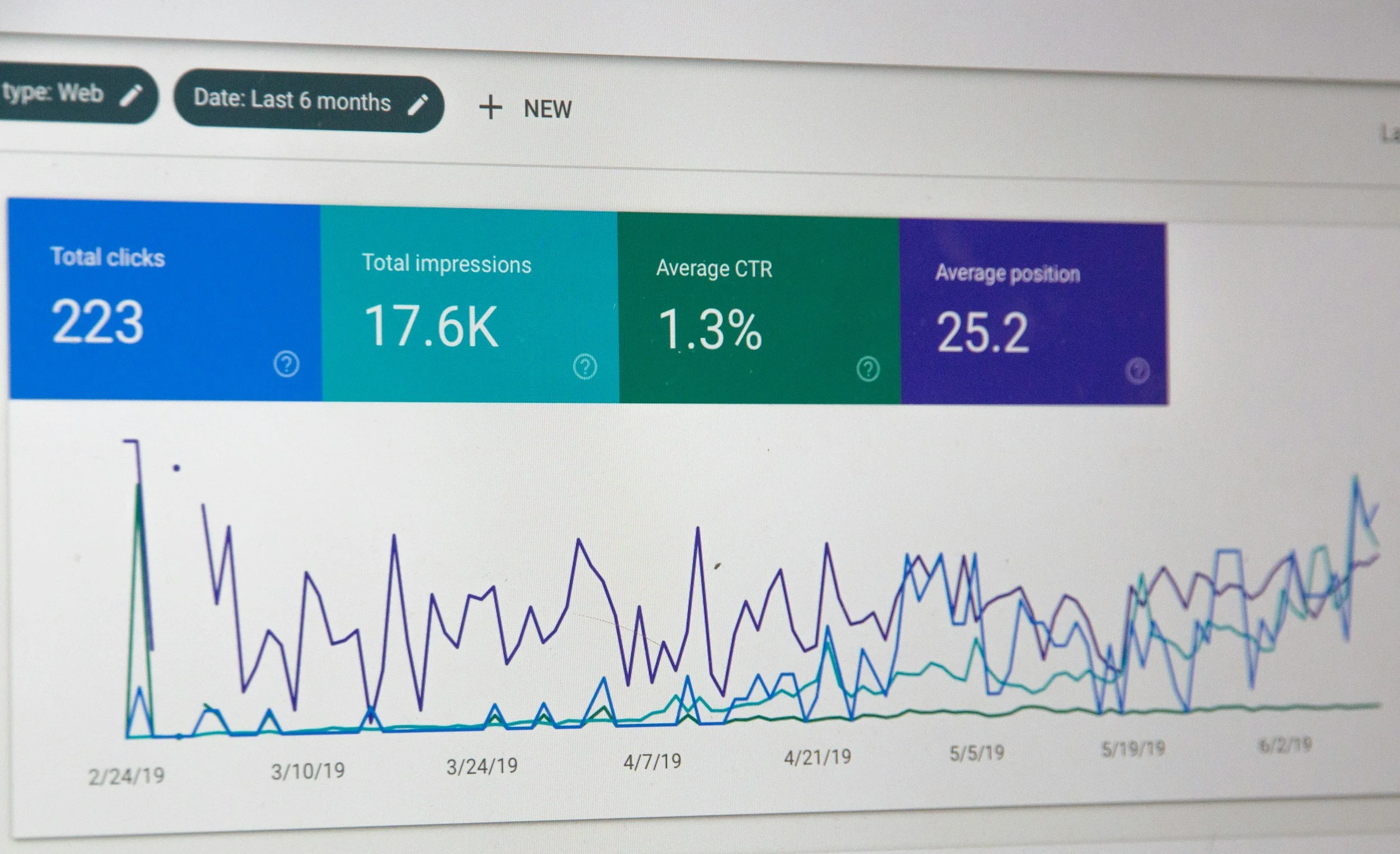
The Path to Actionable Customer Data
My Revenue Operations Manifesto
Where does actionable and accurate data come from?
Consistency
Reliable CRM data isn’t created through luck or manual cleanup—it stems from consistent behavior across your team. Consistent data entry, activity tracking, and process adherence are what make reports meaningful, forecasts accurate, and customer experiences seamless.
How do you get consistency?
Adoption
You can’t enforce consistency if your CRM is only used occasionally or begrudgingly. Consistency happens when the CRM becomes the default system of record—used as intended by everyone, every day.
What drives adoption?
Adoption never comes from mandates. It is nurtured through alignment and utility.
-
People need training, support, and a clear understanding of why CRM matters—not just for leadership, but for their own success. Show how CRM data drives better strategy, smoother operations, and more effective decision-making.
Processes must be mapped, streamlined, and actively managed. Don’t expect to drop a new system in and instantly turn your team into power users. Design CRM workflows that match how your team actually works.
Technology should enable the process—not hinder it. Automate the boring stuff. Eliminate duplicate entry. Make the CRM feel like a partner, not a chore.n text goes here
-
Sales reps and users adopt tools that help them close deals faster, follow up smarter, and serve customers better.
Build dashboards, templates, and workflows that reduce clicks and surface exactly what they need, when they need it.
A good CRM reminds, prioritizes, and guides. When it does that, it becomes indispensable.
-
Use CRM dashboards to drive weekly meetings—they should double as your agenda and your performance tracker.
Leverage CRM data for coaching, not just compliance. Help your team improve by showing them where they’re succeeding and where to grow.
Request assistance and drive accountability by @mentioning teammates directly on CRM records. This action triggers an email notification and creates a centralized, time-stamped trail of collaboration and follow-through. By keeping all communication tied to the relevant deal, contact, or ticket, your team avoids fragmented updates and maintains full context as action items move toward resolution—all within the CRM environment.
When the CRM is required to complete daily tasks and supports every layer of the sales process, it stops being a separate tool. It becomes the workflow.
The Result: Institutional CRM
When adoption is high and processes are aligned with technology, your CRM becomes institutionalized. It’s no longer just a tool—it’s the operational backbone of your business.
Your team doesn’t say, “This is how we do it, and we also log it in the CRM.”
They say, “This is how we do it—with the CRM.”
The process happens in the technology.
The tool reinforces the habit.
The data is the truth.
Where Companies Fail
Many CRM initiatives fall short because organizations try to boil the ocean—attempting to implement every feature, automation, and dashboard all at once. But complex systems built too quickly often lead to overwhelm, poor adoption, and ultimately abandonment.
There’s a saying in leadership:
“Teams don’t rise to the level of their goals—they fall to the level of their habits.”
In Atomic Habits, author James Clear emphasizes that meaningful transformation doesn’t come from massive overhauls, but from small, consistent improvements.
“If you get 1% better every day for a year, you'll end up 37 times better by the time you're done.”
The same principle applies to CRM.
Start with one key behavior, one process improvement, or one dashboard that makes your team's life easier—and build from there.
Where to Start
-
What data is instantly available? What tools make reps' lives easier? How does the CRM reduce internal confusion and improve both the buyer’s and seller’s journey?
-
What insights are most valuable? What order should data be captured in? Which tools or integrations will bring the strategy to life?
-
What’s the timeline? What’s the priority? Where will tasks be tracked? Identify dependencies and define how success will be measured along the way.
-
What are the costs of tools, integrations, or external support? How much internal time will be required? Will cross-functional teams be involved—and can they support the lift?
Why you need CRM to scale
Create an 'Amazon-like' buying experience
Buyers expect speed, personalization, and clarity. A CRM helps you deliver that by tracking preferences, behavior, and history—so every interaction feels tailored, even as volume increases.
Enforce (and improve) processes
Scaling means bringing new people into the system—and they need to get up to speed fast. CRM helps you standardize workflows, enforce best practices, and identify where the process needs to evolve.
Increase sales velocity and increase conversion
CRM removes friction from the sales process: fewer missed follow-ups, faster quote generation, and automated next steps. That means more deals closed in less time.
Lower your customer acquisition cost (CAC)
With clear visibility into your funnel and marketing performance, you can double down on what converts—and stop wasting time on what doesn’t. CRM enables targeted follow-up, smarter campaigns, and better use of your team's time.
Align sales, marketing, and operations
Growth gets chaotic fast without shared systems. CRM creates a single source of truth so all teams operate with the same data, understand their role in the customer journey, and stay accountable to outcomes.
Build a predictable revenue engine
You can't improve what you don't measure. CRM gives you the insight to know what’s working, what’s not, and how to replicate success—turning sales from an art into a repeatable system.
HubSpot Academy Certifications
Sales & Service Focused
-
I hold the HubSpot Sales Hub Software Certification, which signifies hands-on expertise in leveraging HubSpot’s CRM and Sales Hub tools to streamline prospecting, manage contacts, organize deals, and generate impactful sales reports. This credential highlights my fluency with modern, software-driven sales workflows and underscores my ability to drive productivity, efficiency, and strategic alignment in sales operations.
-
Item description
-
I hold the HubSpot Academy Revenue Operations Certification, which signifies mastery in unifying marketing, sales, and customer success functions to enhance operational efficiency and drive revenue growth. Through this free, industry-recognized program, I’ve learned how to map and optimize sales processes, manage systems, establish SLAs, and communicate RevOps value to leadership. This credential reflects my ability to break down silos, implement data-driven strategies, and align cross-functional teams towards shared business outcomes—proving my strategic readiness to contribute to high-performing, revenue-focused organizations.
-
…
-
I hold the HubSpot Academy Frictionless Sales Certification, a title that reflects my grasp of removing barriers in the sales process to unlock efficiency and productivity. Guided by the Frictionless Selling Framework, I’ve learned to enable sales teams to spend more time selling, align them closely with target buyers, and foster a culture of continuous learning that empowers transformation. This credential affirms my ability to deploy strategic, systems-driven improvements that streamline sales operations and fuel sustainable growth.
-
I hold the HubSpot Academy Sales Enablement Certification, demonstrating my proficiency in aligning sales and marketing teams through shared goals, SLAs, and “smarketing” meetings, while empowering sales with relevant content and technology. The course equipped me to develop buyer personas, deploy the jobs-to-be-done framework, create impactful messaging (a “hero statement”), and drive customer success post-sale—all foundational skills for strategic, cross-functional sales enablement.
-
I hold an Inbound Sales Strategies Certification from HubSpot Academy, which demonstrates my expertise in attracting, engaging, and delighting customers through a value-driven approach. This credential reflects my ability to apply inbound principles to real-world marketing and sales operations, showcasing both strategic thinking and a commitment to building long-term customer relationships.
-
…
Marketing Focused
-
I hold the HubSpot Academy Email Marketing Certification, demonstrating my ability to create strategic, high-impact email campaigns through personalization, automation, and goal-driven design. I’m skilled in building and segmenting targeted audiences, optimizing deliverability, and leveraging campaign metrics to drive continual performance improvements—showcasing my readiness to contribute measurable value to any marketing team.
-
Content Hub Software Certification
-
…
-
…
-
…
-
…
-
…
-
…







